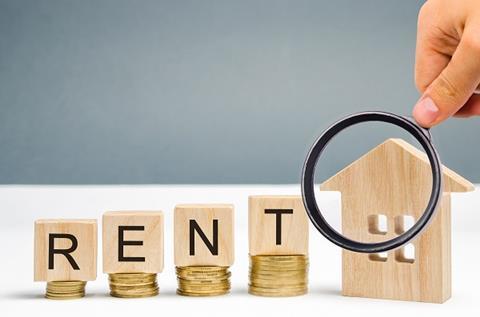Membership body pleased to see rent convergence proposals
Social rent levels have fallen “quite significantly” in real terms over the past 10 years, according to the Housing Forum.

Analysis by the membership body shows average social rents were £92.30 a week in 2014. If they had kept up with inflation they would be £123.73, or £129.70 if they kept up with earnings. However, they are lower than this at £109.44 in 2023/24.
It also said the proportion of income paid in rent by social tenants fell from 29.2% to 26.4% over the same period while the proportion of social tenants who reported that they find it difficult to afford their housing costs fell from 41% to 28%.
Anna Clarke, director of policy and public affairs at The Housing Forum, said: “We know social landlords are always concerned about affordability and the costs of living for their tenants. However, our analysis shows that social rents have fallen quite significantly in the last ten year and form a lower proportion of tenants’ incomes.
“This is nice for tenants but has put a lot of strain on the finances of social landlords. Many social landlords find that their rental income is insufficient to fund their spending on repairs and maintenance, let alone to build new housing.
The fall is attributed to rent increases at times being capped below RPI plus 0.5% between 2007 and 2014.
The government also abandoned the rent rise formula and instigated four years of rent cuts between 2016 and 2020 and scrapped rent convergence in 2014. It capped rents at 7% in 2023 in response to the cost of living crisis.
The analysis, which is based on English Housing Survey data, comes as the Labour government consults on reintroducing rent convergence.
Rent convergence was a policy which allowed cheaper rents to rise more quickly to ensure alignment between similar properties regardless of whether they were council or housing association properties. The scrapping of the policy in 2015 has been estimated by the G15 group of housing associations in London to have cost its members £2bn.
Clarke said: “We were pleased to see the government’s proposals to allow rents to increase towards their target level.
“Rent convergence also means that the rents are fairer, with social tenants in similar properties paying the same rent.”
>>See also: Khan backs 10-year settlement and rent convergence
>>See also: Why convergence needs to be a part of any new social housing rent settlement
In its consultation paper the Ministry of Housing, Communities and Local Government said it “believes that it is right to address the disparity between actual rents and formula rents” and pointed out it would increase the financial capacity of registered providers.
It said failing to bring in convergence would have “adverse consequences” for existing tenants as the constraining effect of unconverged rents could result in properties not being maintained to a standard they expect.
Under the proposals, an absolute cash limit will be placed on the additional amount weekly rents can increase each year. The consultation paper is asking whether this should be £1 or £2 over and above the consumer price index figure.
The consultation runs until 27 August.
The Housing Forum is currently seeking to recruit a new chief executive after Shelagh Grant announced last month she is stepping down.











No comments yet